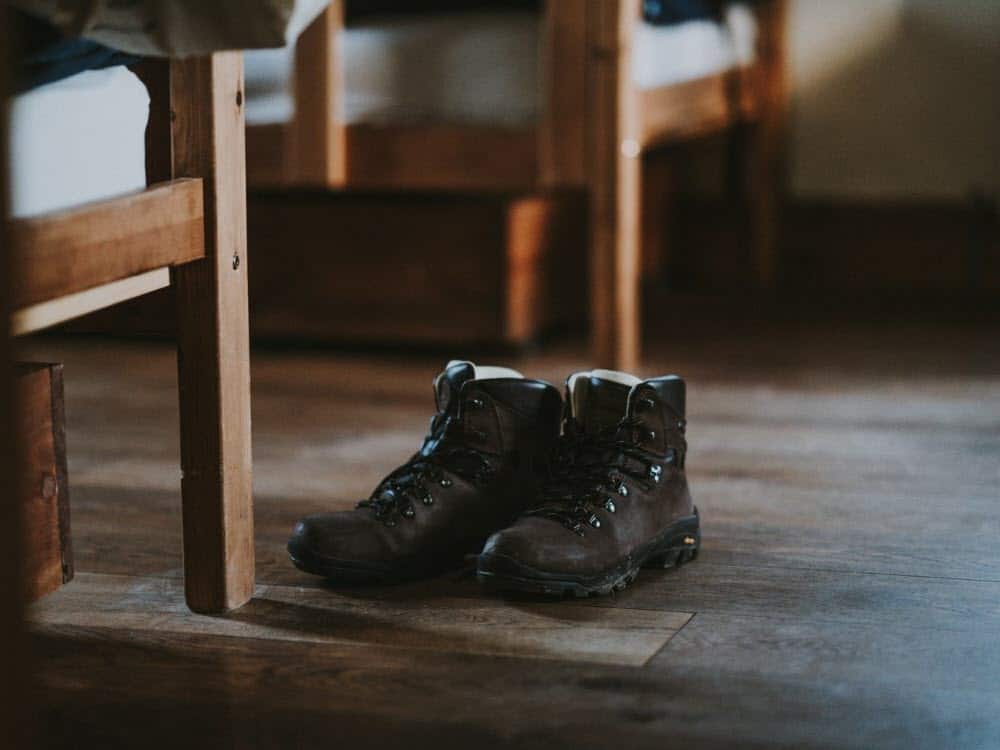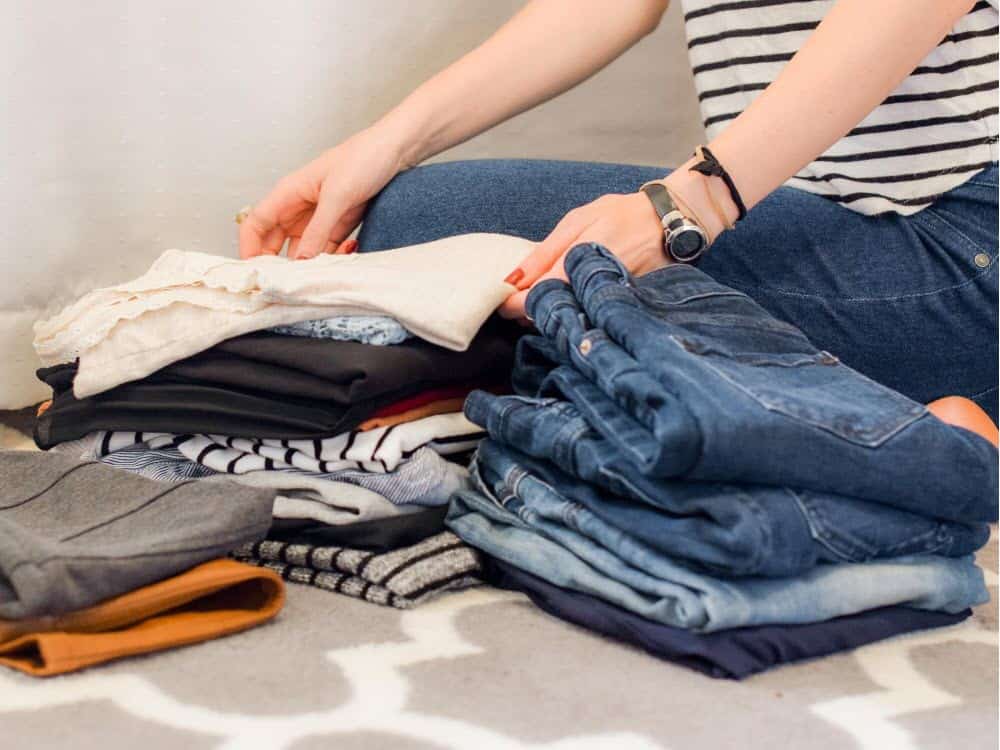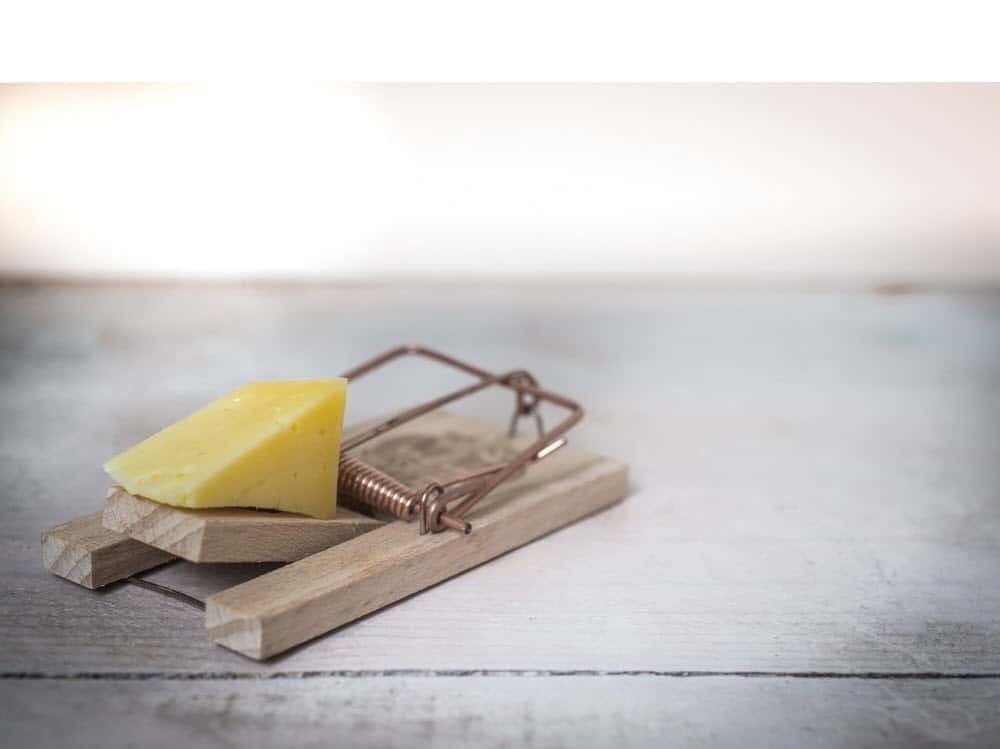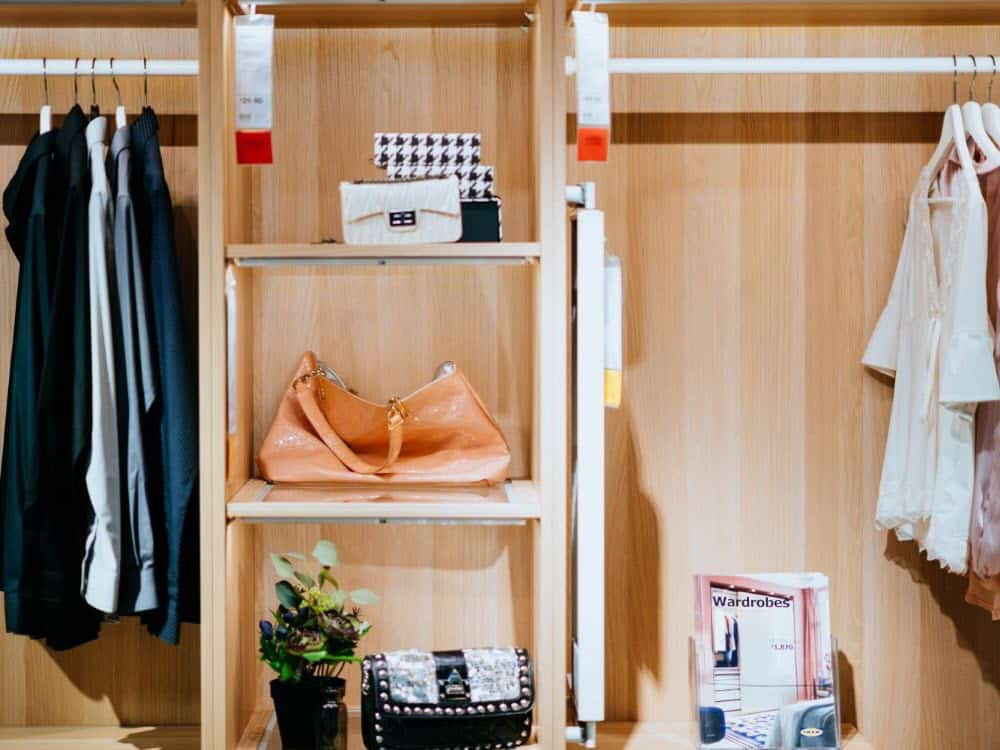
by admin | Jul 29, 2021 | Declutter
The reasons are many and often complicated and the exploration of these is going to open up that proverbial 'can of worms' as we work through these together. The power of emotions has the greatest hold on us as we delve into this topic and some of the reasons will astound you. At the very least you will be surprised by some of the learning you make in the process. Ask yourself :
"Why do I have Grandpa Tom's hand built coffee table in my life?"
"Does the clock on the wall that was on a mantelpiece in my long-dead Aunty's house need to have a place in my own living room, some twenty years after she passed?"
"Does the team football photograph that showed my Dad as a young man about to leave school seventy years ago need to be on the wall in my hallway?"
"Just because I was given a hand painted teapot and matching cups and saucers by my best man and his wife when we first married twenty-five years ago - and divorced after twelve years - should I still have this on the shelf in my kitchen? Especially when I have not used it in the two years since we took it out of the box it was found in?"
These are random questions that I use from my own example of clutter and accumulated items in the challenge that we set ourselves at home. I am sure you can easily find your own relevant examples of things around you.
Here are a couple of simple questions for you today, intended purely to help you find your place in all of this.
Do you consider that you have all your possessions under control?
When you see the clutter in your house, whether on display in the common areas and daily used rooms of your home, or stuffed awkwardly into the lesser observed areas of cupboards, attics, basements or boxes in the garage, how does that make you feel?
Enough said! Your clutter is personal to you and your lifestyle as well as to your attitude and approach to life. Millions of other people live with everything they own under one roof and they experience no guilt or upset. But this exploration of letting go is not about them. I have confessed my own situation and how I felt that so many material things were draining my energy and time. The things we bring into our home space should be there because they make tasks easier or to bring us happiness. Where our possessions become so many that they are more than we can manage and they start to distract us from living the life we should be enjoying, this is where the trouble begins and the stress begins to wear us down. We work longer hours and spend more of our disposable income just to keep the possessions under control by such things as storage, insurance and taking on bigger and more costly spaces to live in.
Quite naturally, we need to place much of our focus on our home, on our living space and the things within it. But a full approach to letting go requires that we don't just limit ourselves only to mess and chaos, to clutter and junk as they appear in your physical world. We will also explore the damage that comes from being connected with toxic people, the distraction of digital clutter and the overwhelm that can come from addiction to gathering more around you than you need.
To answer the question of "Why do we gather clutter?" we do this because we are human. We do it because we feel we need to collect things around us so that we can make statements such as these:
"I am safe now".
"They are not making this quality any more, so let's get one now".
"I can provide for my family".
"I deserve to have this because I have gone through so much".
"Do you know how much I had to work this month?"
"This was a bargain, so I had to get it".
"We've been struggling recently so I figured we deserved this".
Being human gives us a sense that we have to carve out our own identity in a world that is so often homogenised, identical, similar brand - different perspective, must-have, latest trend, special item, but really very much the same. We think that by surrounding ourselves with the things which reflect who we believe ourselves to be in the world, we will then create a space which feels unique to us. And when you first do this, starting to accumulate the things around you which make you feel good, it does seem like you are achieving the goal of originality. But at what cost, or better said, at what price?
What price have you paid to fill your home with the things that you have purchased in order to bring home and use to say "This coat is me" or "These books and this desk are me" or "This car is me". Some of that is your own voice and heart talking. However, there will be a proportion of 'stuff' in your dwelling space which has got in there, easily or by pushing it's way in, because of advertising, because of the cultural influence of your neighbourhood or peer group, of social media and what is or is not 'on-trend' this week. Letting go of this stuff will emotionally and physically open up space in your home. While it can seem like a push to make the decision to look at each thing we have and bag or box it for discarding or donating, the value of doing so is beyond measure.
As we go on this declutter journey together, there will be opportunities to work through various exercises and activities. All voluntary of course. One very probable realisation is likely to be that your early dreams and aspirations for what home should look like, but also feel like, will make themselves very clear to you. Some of these will have been completely forgotten over previous years, others will whisper gently and kindly to you and ask to be let back into your living space to reflect all those good aspects of you, your character and your values. Welcome them when you see them, as you surely will when you reduce the distraction that has been overwhelming your personal space.

by Nick Sturgeon | Jan 7, 2020 | Declutter
I volunteered recently at a countryside youth hostel for walkers and climbers, in the heart of the beautiful English Lake District. I was part of a ten person group who were there to prepare the hostel for the next six months of heavy use by visitors. We all worked together to clear rooms of furniture in advance of commercial carpet cleaners. In small teams of two and three we painted the common room and dining rooms, we painted corridors and stairwells. One day I worked outside and pushed wheelbarrows of gravel to create the paths around the campsite. On another I chopped up small branches and old timber pallets to create the kindling for the open fire in the main common room and bar area.
It was a brilliant week away from home, working at practical tasks each day and then being free in the late afternoon for a walk on the mountains that surrounded us and a chat in the bar and by the log fire each evening. Each day I chatted with whoever I was paired up with for our work and it was fascinating to see a glimpse of the lighter life in action for these other volunteers.
Rob had been working for the past year at a timber chalet holiday home site in Austria, ensuring that six cabins were always ready for the scheduled arrival of holiday makers. He had arrived back from Austria just a week before our working party in the Lake District. The next week he was going on to repeat the process at a hostel in Ambleside. Then again at other youth hostels in Keswick, Longthwaite, Settle, and on to York. All attractive places in the UK. In all he was going to be living and volunteering in eight different hostels on working parties over three months until he takes up a full time job at an adventure holiday site in Scotland from March to October.
Through our conversations I learned that he had only as many clothes as he needs for two weeks in between washing them. He keeps these in his car along with a laptop and half a dozen paperback books for his entertainment. He has no home and very few possessions. The few things he regards as valuable he keeps stored at his stepmom’s house. Otherwise he lives by attending working parties at hostels for three months of each year and receiving a small amount of expenses money each time. The other nine months of the year he does paid full time work at holiday sites where he receives his accommodation for free.
He saves successfully because with no accommodation costs and all his food provided by the adventure camps, what can he spend money on. For two or three nights every ten days, between each volunteer week, he will either sleep in his car or stay over at a friends house, or go back to stay with his stepmother. Rob is 48 years old and has been doing this for the last ten years. He is financially independent and has significant savings.
The conversation with him about not having many possessions, not owning a house, and never having owned one, was a new perspective for me and opened up some fresh ways of looking at his experience and his approach to ownership, home and money. The obvious light-bulb moment for me was the realisation that for so many regular volunteers the companionship they get while on a working holiday is the reason they return so frequently to such weeks.

by Nick Sturgeon | Jan 7, 2020 | Declutter
The cost of moving house, both in terms of paying for a removal company as well as the emotional cost of the effort and energy required, all of this can be high. In preparation for our most recent home move we each went through our clothes and decided what we wanted to take with us versus what we actually had in our drawers and wardrobes. We figured we needed to start somewhere with reducing the amount of ‘stuff’ we took with us. Being charged by the number of crates we moved was a motivator to reduce costs by moving with less. Why pay someone else to move the ‘junk’ and clutter you have accumulated?
One day in a very simple process I lifted out all the shirts from my wardrobe and laid them on the bed in a pile. I had two dozen shirts on hangers. Asking myself “Do I love this shirt and feel good when I wear it?” I went through them in ten minutes and let go of nine.
The fifteen shirts I hung back in the wardrobe are all smart, gorgeous or look great. In my chest of drawers I repeated the process and lifted out all twenty tee shirts, putting them on the bed so I could clearly see and touch each one. I repeated the process with a similar “Do I love this tee shirt and feel good when I wear it?” How many did I keep? Ten to keep and ten to bag for the charity shop.
In one hour I had removed the following clothes:
- Nine long sleeved shirts.
- Ten tee shirts.
- Three pairs of shorts.
- Three winter coats.
- Twenty seven neck ties.
- Three bed or sofa throws.
A total of fifty five items from one hour of focus. If I had looked through the items and thought to myself “Do I like this shirt?” or “Is this coat nice?” I may not have let any of them go. By putting a specific “Do I feel good when I wear it?” on the item I was making a much clearer, emotionally based decision. Four large bin bags went with me to the charity shop the next day and it felt great to hand them over and to understand that these clothes and the blankets could have a second life, being useful, good or comforting for another person. But when I stepped out of the goodwill store I felt amazing, I felt lighter in my own self.
This is what the ‘lighter life’ is all about, being in the place within yourself where you are letting go of the emotional baggage that comes with all the ’stuff’ that holds us back. Letting go of the physical so often brings with it a lifting of the emotional or sensed weight upon our shoulders. Much of the time we don’t even know this heaviness is there, but at the moment of letting something leave our space or our ownership, we then feel the lifting of the burden we had not known we were carrying.
Right, time to look in those wardrobes!

by Nick Sturgeon | Jan 7, 2020 | Declutter
Any of your possessions that overwhelm you, or cause you to think daily of the mess you live with, these are a massive drain on you emotionally as well as practically, and there is no better time to put your focus on this issue than today. If you are ever frustrated by the amount of stuff and how this might be holding you back, then you know must deal with it. The basics of you not living the life you want stem from the clutter you drag around with you.
Not happy with the cost of your home environment? You have so many options to make change for the better:
- Sell off enough that you can downsize to a more affordable property, or raise funds to place into savings and investments for the longer term.
- Take on a good part time job that will pay you regular income for your time, but put all those additional earnings into investments.
- Start a side hustle for some passive income with the potential to leverage upwards.
Disappointed that you have not followed up the hobbies and activities which bring you happiness? Make space for them in your home and you will free yourself up to put the activity in your diary and make it happen. Brush the dust off that skipping rope and start to use it. Take your hobby gear out of the garage and get busy with what you love.
Fed up with your lack of social life or avoidance of good friendships? Declutter another space in your home for more good energy to replace the stagnation that has been holding you down and keeping you depressed or sad about the lack of social engagement with others. Clear a space today. It doesn’t have to be a whole room. Start with a shelf or that top drawer of underwear. Maybe go through one box that has been sitting in the cupboard below your stairs.
Living this Lighter Life is not restricted to reducing the emotional and physical weight of the items in your home, though you do need to give attention to the fact that letting go of physical things does create a sense of feeling lighter about your situation in general. It gives you as well a great sense of immediacy about your decision making abilities. Where the excess of belongings in your space is creating the actual appearance of a home that is filled or cluttered or ‘stuck’, the opposite of this is that a reduction of those belongings brings with it the real opportunity to take advantage of the better things that will make themselves available.
Get busy letting go of those things which no longer serve you, support or make you feel happy.
If you went through your wardrobe how many items could you let go of, removing them permanently from your drawers and wardrobes? How would it feel to only keep the clothes you adore and which you feel great in?
Take a walk around your living room and consider the items that you don’t truly love. A picture you can live without, some cushions or a throw rug you have not really ever liked, a family heirloom that you have out of guilt rather than love for the person it once belonged to. You can pack these things up and put them aside for a week. Any second thoughts will allow you to hang onto one or two of the items which you miss, but now you are free to take the box down to your goodwill store and donate it to a cause who will be grateful for your donation.

by Nick Sturgeon | Nov 7, 2019 | Declutter
At what point this past month did you think about your home and living space and wish you had less? Less clutter to hold you back, to tie you down and to hold you in one place.
Consider these very simple situations :
If the world gave you a year’s income today could you get on a flight next week and not look back to your home and possessions while you are away?
If a dear friend called you tonight and invited you to join them on the other side of the world for a three month adventure, with all your expenses paid for travel and accommodation, could you join them this weekend?
If you get into work next Monday and your employer gives you the news that your entire department is closing down, (and assuming your own finances are good and you have savings for the project) can you lock the door on your home and possessions, leaving them behind for a full month of training or education you have wanted to attend since you learned about it a year ago?
In each scenario we are assuming that the bills are taken care of, that finances are no reason for you to avoid the opportunity to enjoy yourself. If the money is not an issue and you have the confidence to take part in the adventure and you have the freedom in your calendar, why are you not doing these things?
Most households - and you might be one of them - are trapped by the burden of not being in control of their possessions. You cannot lock the door on your practical ownership of clutter and junk to take off and enjoy yourself. You couldn’t rent out your home for a longer trip, because the chaos is everywhere and way too much for a guest to live with. You can’t invite guests to stay for even a weekend due to the level of mess. You cannot relax on a long holiday for fear of the clutter that needs your mental attention (even if you rarely do anything to practically deal with it). In any of these scenarios your clutter is in control of you as opposed to you being in charge of your living space and possessions.
The freedom to be you or to live this lighter life, is about having only those belongings and possessions in your home space that you need to be happy and settled. I am not referring to minimalism here, but to being aware of what you have and how to find it when you need it. The freedom to be yourself is immensely valuable. It is very much at odds with any sense of being trapped or held back by the volume of stuff which invades your private space and potentially or actually hinders your decision to think, act and choose freely about what you can do.
Consider what you can do to create more flexibility and give yourself access to this Lighter Life. Make it easy by focussing on what you want to do, how you wish to see and bring about change. Create some image boards of the lifestyle you can access when you remove the trap of the clutter. Minimise the amount of junk in your house. Let go of the things you no longer need or stopped using a long time ago. This is your opportunity to bring about change that can improve your life.

by Nick Sturgeon | Nov 7, 2019 | Declutter
If you have become a clutter junky over time, then this journey is going to require you to be brave as we move along a path towards a home with less burden and more joy, to a place where you know what you have and where it is. If you simply have more stuff than you need to live a happy and fulfilling life, and cupboards and wardrobes bulging with stuff you neither use nor wear, then you will enjoy the practical satisfaction and emotional relief that comes with the letting go of the unwanted, the unneeded and the undesirable ’stuff’ that is clogging the arteries of your living space.
Imagine the pleasure of coming home to a place where everything has its place and you know precisely where that place is. How much time do you lose in the course of just a week looking for things that are no longer where you imagined them to be and in struggling to consider how you might find them? Imagine also what might happen if, within your accumulated record of your life history, you find and reconnect with items that are in good order and have a value to someone else, that can be sold via online sites and where you can receive the financial value of such things with relative ease.
Always a book collector or addict, I have struggled to leave a bookshop without buying something that looked great, but which I might not get around to reading. So the day I came home from bookshop, having browsed a title dealing with creating a tidy home, and without a new book in my hands was a real turning point for me.
I came through the front door and said “We have to do something. I realise the level of my hoarding and am really embarrassed about it.” I was genuinely distressed at how out of control my book addiction had become and had fixated on this thought since driving back from the book store. My partner is kind and caring and understood. She simply said “I’ve been waiting for you to realise this, my love”, and gave me the biggest and most understanding hug. In that simple moment was born the start of our plan to declutter and live a lighter life, one without the burden of the clutter and the chaos it brings.
What is it that you collect, gather around you as if it is going out of fashion or as if it will never be available again? Is there a theme or trend to what you bring home and hoard? By identifying and understanding these patterns of hoarding and gathering clutter, you are half way to recovery. Knowing what is getting in your way is what you have to discover for yourself in order to become free of the clutter bug.
Be kind to yourself as you work through the ideas behind your gathering junk, building a collection, creating a bunch of ‘treasure’ - at least in your eyes - and make some steps to break the addiction.
You can do this, but just take it one day at a time.
Why do we gather clutter?
The reasons are many and often complicated and the exploration of these is going to open up that proverbial ‘can of worms’ as we work through these together. The power of emotions has the greatest hold on us as we delve into this topic and some of the reasons will astound you. At the very least you will be surprised by some of the learning you make in the process. Ask yourself :
“Why do I have Grandpa Tom’s hand built coffee table in my life?”
“Does the clock on the wall that was on a mantelpiece in my long-dead Aunty’s house need to have a place in my own living room, some twenty years after she passed?”
“Does the team football photograph that showed my Dad as a young man about to leave school seventy years ago need to be on the wall in my hallway?”
“Just because I was given a hand painted teapot and matching cups and saucers by my best man and his wife when we first married twenty five years ago - and divorced after twelve years - should I still have this on the shelf in my kitchen? Especially when I have not used it in the two years since we took it out of the box it was found in?”
These are random questions that I use from my own example of clutter and accumulated items in the challenge that we set ourselves at home. I am sure you can easily find your own relevant examples of things around you.
Here are a couple of simple questions for you today, intended purely to help you find your place in all of this.
Do you consider that you have all your possessions under control?
When you see the clutter in your house, whether on display in the common areas and daily used rooms of your home, or stuffed awkwardly into the lesser observed areas of cupboards, attics, basements or boxes in the garage, how does that make you feel?
Enough said! Your clutter is personal to you and your lifestyle as well as to your attitude and approach to life. Millions of other people live with everything they own under one roof and they experience no guilt or upset. But this exploration of letting go is not about them. I have confessed my own situation and how I felt that so many material things were draining my energy and time. The things we bring into our home space should be there because they make tasks easier or to bring us happiness. Where our possessions become so many that they are more than we can manage and they start to distract us from living the life we should be enjoying, this is where the trouble begins and the stress begins to wear us down. We work longer hours and spend more of our disposable income just to keep the possessions under control by such things as storage, insurance and taking on bigger and more costly spaces to live in.
Quite naturally, we need to place much of our focus on our home, on our living space and the things within it. But a full approach to letting go requires that we don’t just limit ourselves only to mess and chaos, to clutter and junk as they appear in your physical world. We will also explore the damage that comes from being connected with toxic people, the distraction of digital clutter and the overwhelm that can come from addiction to gathering more around you than you need.
To answer the question of “Why do we gather clutter?” we do this because we are human. We do it because we feel we need to collect things around us so that we can make statements such as these :
“I am safe now”.
“They are not making this quality any more, so let’s get one now”.
“I can provide for my family”.
“I deserve to have this because I have gone through so much”.
“Do you know how much I had to work this month?”
“This was a bargain, so I had to get it”.
“We’ve been struggling recently so I figured we deserved this”.
Being human gives us a sense that we have to carve out our own identity in a world that is so often homogenised, identical, similar brand - different perspective, must-have, latest trend, special item, but really very much the same. We think that by surrounding ourselves with the things which reflect who we believe ourselves to be in the world, we will then create a space which feels unique to us. And when you first do this, starting to accumulate the things around you which make you feel good, it does seem like you are achieving the goal of originality. But at what cost, or better said, at what price?
What price have you paid to fill your home with the things that you have purchased in order to bring home and use to say “This coat is me” or “These books and this desk are me” or “This car is me”. Some of that is your own voice and heart talking. However, there will be a proportion of ‘stuff’ in your dwelling space which has got in there, easily or by pushing it’s way in, because of advertising, because of the cultural influence of your neighbourhood or peer group, of social media and what is or is not ‘on-trend’ this week. Letting go of this stuff will emotionally and physically open up space in your home. While it can seem like a push to make the decision to look at each thing we have and bag or box it for discarding or donating, the value of doing so is beyond measure.
As we go on this declutter journey together, there will be opportunities to work through various exercises and activities. All voluntary of course. One very probable realisation is likely to be that your early dreams and aspirations for what home should look like, but also feel like, will make themselves very clear to you. Some of these will have been completely forgotten over previous years, others will whisper gently and kindly to you and ask to be let back into your living space to reflect all those good aspects of you, your character and your values. Welcome them when you see them, as you surely will when you reduce the distraction that has been overwhelming your personal space.





